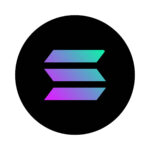Bitcoin, the first and most well-known cryptocurrency, is a decentralized digital currency that enables users to make peer-to-peer transactions without the need for a central authority.
What is Bitcoin?
Bitcoin is a form of digital money that operates on a technology called blockchain, which is a public ledger containing all transaction data from anyone who uses bitcoin. Transactions are added to “blocks” or the links of code that make up the chain, and each transaction must be recorded on a block.
Setting Up a Bitcoin Wallet
Before you can start using Bitcoin, you need to set up a digital wallet where you can securely store your coins. Wallets can come in the form of online services, desktop software, mobile apps, or hardware devices.
Types of Wallets
- Software Wallets: Applications you download on your device, such as Electrum or Bitcoin Core.
- Mobile Wallets: Apps for your smartphone, like Mycelium or BRD.
- Web Wallets: Online wallets provided by services like Blockchain.info or Coinbase.
- Hardware Wallets: Physical devices like the Ledger Nano S or Trezor.
Securing Your Wallet
- Choose a wallet that allows you to keep control of your private keys.
- Use strong passwords and enable two-factor authentication.
- Regularly backup your wallet to protect against computer failures and human mistakes.
Acquiring Bitcoin
Buying Bitcoin
- Exchanges: Sign up with a Bitcoin exchange like Coinbase, Binance, or Kraken, where you can purchase bitcoins with fiat currency.
- Bitcoin ATMs: Use ATMs that allow you to exchange fiat for Bitcoin.
- Peer-to-Peer (P2P) Platforms: Websites like LocalBitcoins or Paxful where you can find sellers who accept various payment methods.
Earning Bitcoin
- Work for Bitcoin: Offer your services or products in exchange for Bitcoin.
- Mining: Use specialized hardware to help process transactions and secure the network, earning new bitcoins as a reward.
Using Bitcoin
Making Transactions
- Sending Bitcoin: To send Bitcoin, you need the recipient’s address and access to your wallet. Enter their address, specify the amount, and send.
- Receiving Bitcoin: Provide your Bitcoin address to receive funds.
Understanding Transaction Fees
- Bitcoin transactions require a fee paid to miners. Fees vary based on network congestion.
Bitcoin Best Practices
Stay Informed
- Cryptocurrency is a rapidly evolving space. Follow news outlets, forums, and social media to stay updated.
Be Cautious
- The irreversibility of Bitcoin transactions means that security should be your top priority.
- Be wary of scams and too-good-to-be-true offers.
Consider Long-Term Storage
- For larger amounts of Bitcoin, consider using a hardware wallet or paper wallet for extra security (often referred to as “cold storage”).
Conclusion
Bitcoin offers an innovative way to handle financial transactions, free from central banks and governments. It’s a volatile but growing space for investment and transaction. As with any financial endeavor, it comes with risks, so it’s essential to do your research, understand the technology, and proceed with caution. This tutorial should give you a solid foundation to begin exploring the world of Bitcoin.









